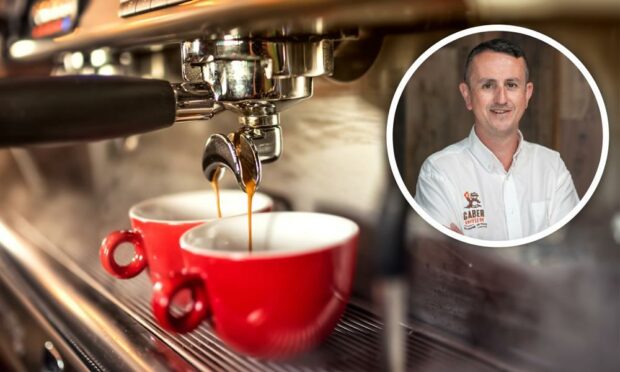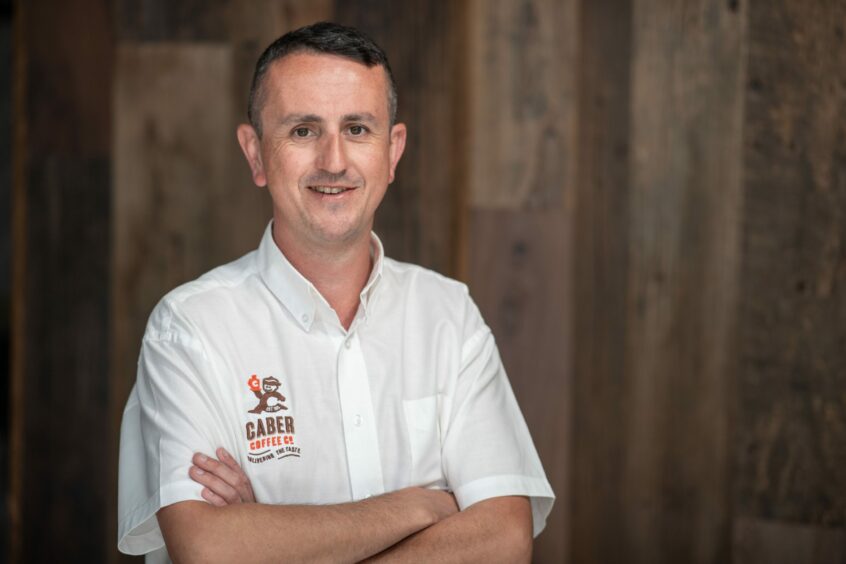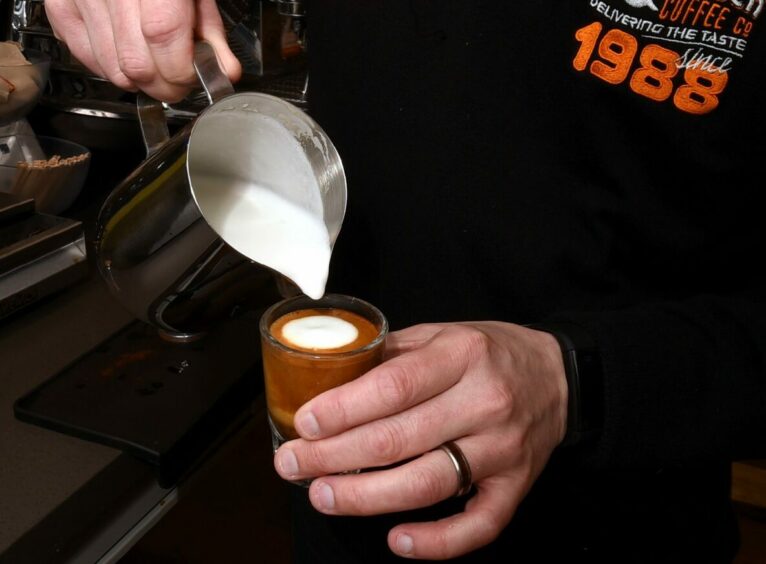For many, a cup of coffee is an indispensable part of the day. But, faced with rising prices, coffee lovers may have to reconsider how much they are willing to pay for their daily caffeine fix.
Circumstances as varied as climate change and higher cardboard costs are conspiring to make coffee more expensive than it has ever been.
Prices in the north-east are to jump by as much as 50p a cup, according to local cafes and suppliers.
Meanwhile, higher bills on everything from gas to groceries will make people think harder about where they spend their hard-earned cash.
Anxious times
It’s a perfect storm that is giving some of the owners of coffee shops sleepless nights.
Including Craig Adam, the owner of Kilau Coffee which is located on High Street near the Aberdeen University campus in the city centre.
Adam believes that within the next year the price of a cup of coffee in Aberdeen will rise by 15-20%.
This, he says, will add further pressure to a business already hit hard by lockdown and Covid-19.
“It’s probably the most anxious I’ve been,” said Craig.
“For almost two years, we’ve had all these unknowns. As we start to get back on our feet, prices start to increase. It’s been a challenging period.”
Craig isn’t the only one concerned about price hikes.
Findlay Leask, owner of Aberdeen coffee firm, Caber Coffee, which supplies roasted beans and other drinks-related items throughout the region, is certain prices will change in the coming weeks, if not sooner.
“Price increases are inevitable at your favorite coffee shop in the coming weeks and months,” said Findlay.
The businessman fears that coffee as an “affordable treat” is under threat. But he urges people to support local coffee shops where they can “because they have been to hell and back over the past two years”.
Spiraling coffee prices
Why is coffee more expensive just now?
Prices for unroasted, raw coffee beans are at a seven-year high because of extreme weather in Brazil and other coffee-growing regions.
But that is only part of it.
Once collected, the beans make long journeys by boat, so have been hit by unprecedented increases in container ship costs.
According to Findlay, the cost of transporting a 400-ton container of beans from Colombia has jumped from US$800 to $20,000.
Costs continue to add up once the beans arrive.
Roasting the beans is also now more expensive because of the higher gas prices, and cardboard packing prices have jumped as paper becomes harder to get a hold of.
Even the foil used to keep packs of coffee fresh costs more than it did six months ago.
“The whole thing’s just going bad,” says Findlay.
“It’s utter madness.”
Even high street chains are affected. Pret A Manger, which has two outlets in Aberdeen, will raise the cost of its monthly coffee subscription from £20 to £25.
The company blamed higher milk and coffee bean costs, as well as higher staff wages.
☕️ #Pret is upping the price of its coffee subscription by 25% – due to #inflation, natch…
Controversial opinion: @Pret should actually DOUBLE the price, and cut smoothies, because >50% customers would still pay, but queues would get shorter… pic.twitter.com/Ve1x0Kqm3B— Kien Tan (@kientan74) February 2, 2022
Serious issues
But the biggest damage will be to independent coffee shops.
“People are just going to have to be aware that things that used to be always there may not always be there,” says Ian Cukrowski, who has run Aberdeen coffee roaster firm MacBeans for more than three decades.
“The supply issues are quite, quite serious.”
At Kilau, Adam is seeing basics such as milk become 15% more expensive than they were just six months ago.
Meanwhile, he is braced for the return of VAT. The tax was frozen at 5% for hospitality venues during the coronavirus lockdown but is set to rise to its pre-pandemic level of 20% from April.
“You don’t want to be too negative all the time,” he says. “But it is difficult to see many bright spots at the moment.”




